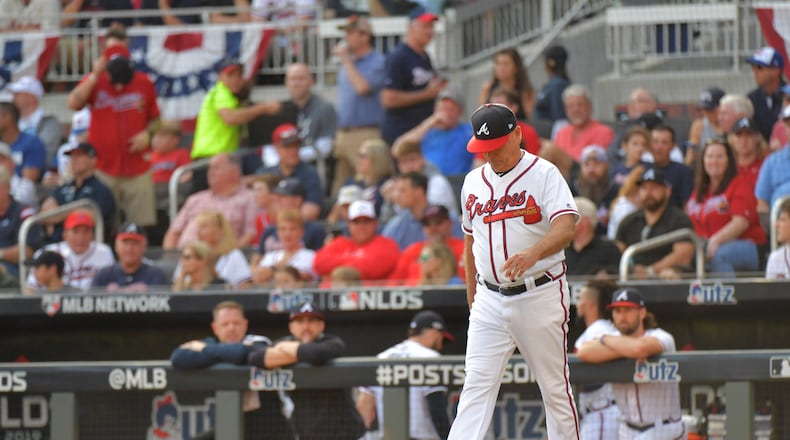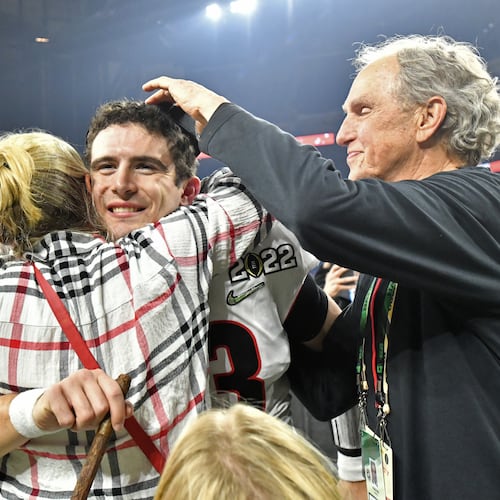Give baseball some credit. While the game struggles to deal with weighty issues such as integrity, it at least has done one thing that may make it less likely you’ll want to gouge out your own eyes sometime from any given sixth inning on.
In hope of streamlining those late innings, MLB will audition a new rule this season to curb every manager’s urge to change pitchers like they might change channels on a late night when all that’s on are skin-care and pressure-cooker infomercials.
Now when a reliever comes in, he must at least face three batters, or finish an inning. It was done in the hope of speeding up the game a bit and eliminating one pitching change after another – and all the delays that entails – as managers seek the perfect match-up to underscore their genius. Now there is potentially more to consider when bringing in that left-handed specialist to get that one left-handed hitter out.
Generally, the commanders of the dugout didn’t seem to favor the rule. They said it interfered with the grand chess match within a ballgame. What they don’t understand is that nobody goes to a ballpark to watch chess. For that matter, who goes to a chess match to watch chess? I know haven’t put on my Bobby Fischer jersey for a big match in decades.
But when the Braves manager Brian Snitker was asked the other day during the Braves’ Chop Fest about his beefed-up bullpen and how it might be suited to this new relief era, he had zero complaints.
“We don’t really have that left-handed match-up guy, and that’s good with this new set of rules,” Snitker said.
“You got guys who are all clean-inning guys, not really match-up guys,” he continued. “That’s going to become more important. That’s how we’re going to develop relievers in the minor leagues. You’re not going to be able to have that luxury anymore to bring that guy out for one hitter. You’re going to need those type of guys, and I feel very fortunate with this new rule coming up that we have that.”
It was the bullpen, of course, that Braves GM Alex Anthopoulos attacked with great vigor, both through trades last season and off-season signings such as that for free agent closer Will Smith.
Not coincidentally, as well as good, the cast assembled in the Braves bullpen seems to be versatile. Imagine that, a pitcher who can get a hitter out regardless of which side of the plate he happens to stand.
If Snitker is right, the Braves have anticipated the needs under this new rule and will be better suited to get through the late innings regardless of the situation.
For instance, several of the Braves’ right-handed relievers are more than capable of facing the occasional accomplished left-handed hitter. In fact, Chris Martin, Mark Melancon and Luke Jackson all are right-handers who have better career numbers against lefties than those hitting from the right side.
And the left-handed Smith is no specialist, which is nice for someone who is meant to get those last three outs, regardless of the hitters’ dominant hand. Oddly enough, Smith doesn’t get a say in the other team’s lineup. For his career, lefties have hit .224 with a .629 OPS. From the other side, a little more but nothing outrageous: .245 with a .723 OPS.
It may seem odd to enter a Braves spring and not be in a state of teeth-grinding anxiety over the bullpen. And to be at this stage and to be actually relying upon the ’pen as a strength of the team is downright disorienting. Not really sure yet we can trust that unfamiliar feeling of well-being.
Turns out another reason to like the Braves relief is how it might function in harmony with a rule change. Along with the some of the more usual reasons.
“The bullpen is really deep; you can go a number of different ways with it. You can really shorten a game with the additions that we made,” Snitker said.
If it plays out as is laid out by the Braves, they might just flourish within baseball’s search for the more bearable late innings.
About the Author
The Latest
Featured



